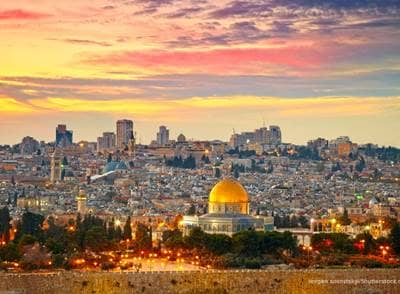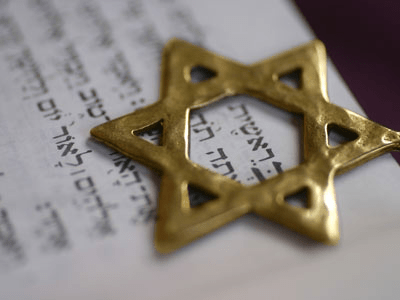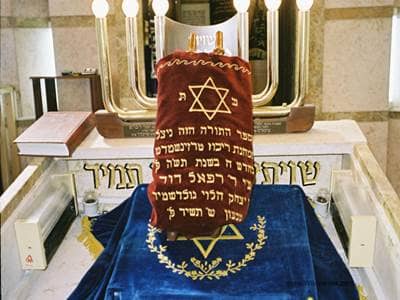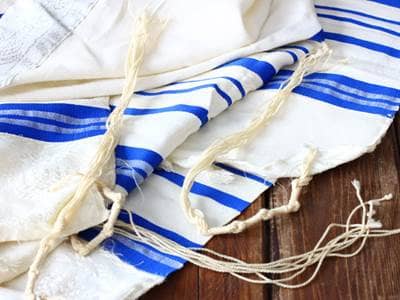
My name is Gabriel Naddaf, and I have the privilege of being a Greek Orthodox priest from Nazareth in the Galilee. My people have mistakenly been called “Christian Arabs,” but the reality is that we are Arameans—descendants of people who lived here in Israel since biblical times.
Recently, Israel’s Interior Ministry recognized us as the “Aramean nation,” following a lengthy public campaign. Partners in this effort include a number of Israeli Zionist organizations.
In the past three years, I have become a controversial figure in Israel for the simple reason that I embrace Zionism, Jewish sovereignty in Israel, and the tolerance, respect, and opportunity that has grown out of that sovereignty for all. I believe that our youths—Christian youths—should fully integrate into Israeli society. Part and parcel of that integration includes serving in the Israel Defense Forces (IDF) or undertaking some other form of national service that Israel routinely provides for teenagers.
In 2012, a few Christian IDF officers and I founded the Israeli Christians Recruitment Forum (ICRF). My efforts have had mixed results. On the positive side, hundreds of Arab or Aramean Christian youths have heeded my call and have served their country with distinction. They have been embraced by their fellow soldiers, who regard them as comrades in arms, and not as strangers in their midst.
On the downside, the blowback, as it were, from my efforts among rejectionist elements in the Christian and the Muslim Arab community has been intense. Christian soldiers have been har-assed by their neighbors, and in many cases, by their own families. These soldiers are forced to change out of their IDF uniforms before returning to their home towns, for fear that they may be harassed on their way home.
Another example came in 2012, when a conference was held in Nazareth by supporters of Chris-tian recruitment to the IDF. A local leader, attorney Abir Kopty from the Mossawa Center, at-tacked the participants and accused them of persecution of Palestinians. Kopty also suggested that integrating Christians into the army was an attempt to divide Arab society in their national struggle against Israel.
Following the conference, a campaign of harassment began against the conference’s organiz-ers. Students who participated were also threatened, isolated, and suffered humiliation via social networks and in the Arab media. A Zionist organization that supports us, Im Tirtzu, subsequently published a report detailing statements made against Christians who encouraged Christian en-listment in the IDF.
Personally, my conviction and actions have led to numerous death threats against me, my ex-communication by the Orthodox Church Council, and the prevention of my entrance into the Church of Annunciation.
None of this has anything to do with the Israeli government or the Jewish community. The asser-tion of Israel as a so-called “apartheid state” is complete nonsense. My successes and challenges speak loudly as to where the real problems lie for my fellow Christians.
It pains me to say this, but it must be said. The incitement against me, my campaign, and all those Christians who have sought to integrate into Israeli society has been led by Arab leaders from Israel and abroad, and even by some Arab members of Israel’s Knesset legislature. MK Hanin Zoabi wrote to me on official Knesset letterhead and accused me of “helping the enemy of the Palestinian people” and “collaboration with occupying forces.” She pressured me “to fight against the loyalists of the regime.” Of course, all this creates an atmosphere of incitement against me and anyone who is interested in integrating the Christian minority into the national service frameworks in Israel.
But these people have had help. Under the guise of human rights protection, organizations such as Mossawa—which is funded by the New Israel Fund—have joined the incitement campaign and have accused the leaders of the Christian-Arab community in Israel who support integration of collaboration with the IDF, often dubbing the IDF “the Zionist Occupation.”
A blacklist of priests and Christian leaders that support integration and cooperation with the State of Israel has been compiled, and pictures of leaders and youths who participated in IDF events have made their way into the Arab press, endangering their lives and encouraging violence. Mossawa is not alone in trying to deny Christians the right to integrate into Israeli society. A massive campaign against enlistment of Israeli Arabs into the IDF has been led by other organi-zations.
This campaign included massive pressure on the Israeli and Arab press, including a set of articles published on the +972 website in 2012 denouncing Arab enrollment in the military or national service; school activities that are intended to educate children not to serve the country; or the ef-forts of Baladna, an NGO that has worked for many years among the Arab youth in Israel, teach-ing them about the “threats” implicit in participating in national service or the IDF. Adalah , an-other NGO, is working to prevent military veterans from receiving housing benefits in Arab cit-ies.
Among these Israeli non-profit organizations opposing the Aramean community’s integration into Israeli society, some are composed of Israeli Arabs, while others are on the extreme left and are anti-Zionist. These NGOs reject Israel as the national home of the Jewish people. They would like to cancel the law of return and remove the Jewish character of Israel. They would reject the special status of the Hebrew language, modify the national flag and the national anthem, and make Israel a binational state. These organizations call on the Arabs of Judea and Samaria and the Arabs living in Israel to come together to fight against Zionism. The idea that one group has separated itself from this struggle by identifying itself as Aramean is, for them, anathema.
All of these organizations claim that they are fighting for the weak, for the minorities who cannot stand up for themselves, and demand and fight for their own rights. But ultimately, the actions of these NGOs beg the question of what rights they are really fighting for, whose interests they are protecting, and what their real agenda is.
Clearly, these NGOs have no interest in seeing Christian Arabs become part of Israeli society. Much like the Arab countries that have used Palestinians in various refugee camps as pawns in fighting the State of Israel, these NGOs are content to reduce my community to cannon fodder in their efforts to de-legitimize Israel.
My community is effectively being told to fight for their continued marginalization by Israeli society, even though it is the Israeli government’s goal to bring them more fully into the main-stream. Doesn’t the Christian community deserve the right to follow our own will and integrate, if it so chooses, into Israeli society? Not according to most of the NGOs that say they are assist-ing our community.
As a priest, I am distressed by this unwillingness to promote the welfare of individuals in the name of a monolithic group identity, whose goals and objectives can be set by those who might have very little in common with the community they supposedly represent.
As Christians in Israel survey the situation of our brethren in the wider Middle East, we are ap-palled by the persecution that so many have experienced in Egypt, Syria, and Iraq, among other countries. Truly, it has only been in Israel where Christians can fully practice our faith and can be productive members of society.
We are not interested in misguided policies that would only bring harm and dislocation to us. Instead, we see and appreciate the opportunities to live full Christian lives in the Jewish state.
It is important that Christians around the world understand that a Jewish Israel has been a re-sponsible steward for its Christians. We should be supported, and not demonized, for our efforts to more fully join this benevolent society.




